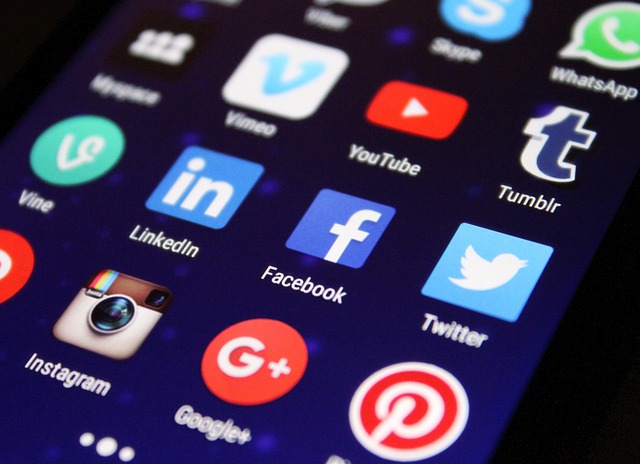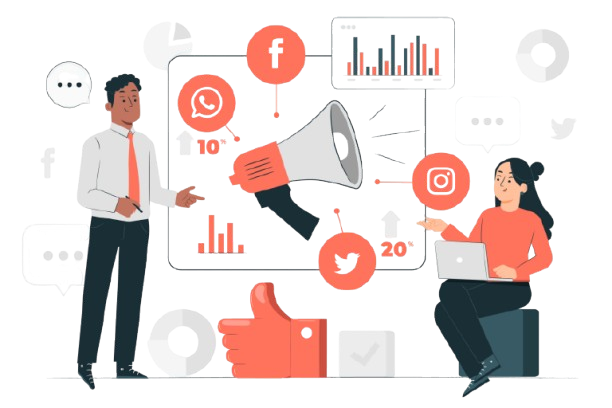Artificial Intelligence (AI) has been a buzzword for the past few years, often associated with futuristic scenarios and high-tech environments. However, AI is no longer just a vision of the future; it has become an integral part of our present, particularly in the digital marketing agencies day to day operations. As we look forward to the Impact of AI on Marketing in 2024, AI is poised to revolutionize marketing in ways we are only beginning to understand. In this article, we’ll explore three significant ways AI will transform the marketing landscape and provide 15 examples of artificial intelligence in marketing, along with insights into the AI tools that are driving these changes.
1. Impact of AI in Personalization Paradigm Shift
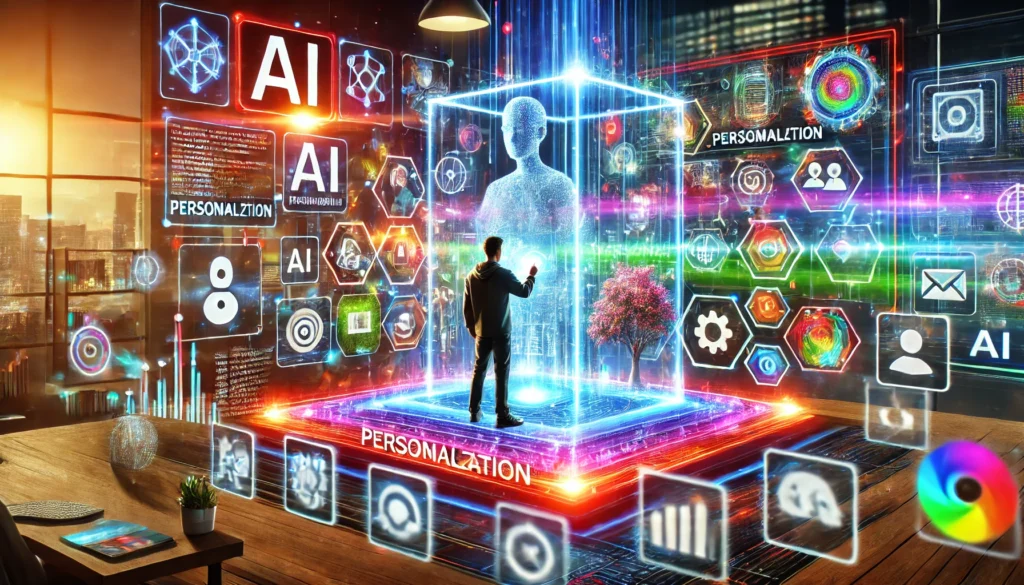
One of the most significant impacts of AI in marketing is the ability to deliver highly personalized content to consumers. Personalization has always been a cornerstone of effective marketing, but AI takes it to a whole new level.
Hyper-Personalized Content
AI algorithms can analyze vast amounts of data to understand individual preferences and behaviors, enabling marketers to create content that resonates with each consumer on a personal level. This means going beyond addressing consumers by their first name in an email. AI can determine the best time to send a message, predict which products a consumer is likely to be interested in, and even tailor website experiences in real time to suit individual user preferences.
Dynamic Pricing Models
AI also allows for dynamic pricing strategies that can adjust prices in real time based on demand, availability, and customer profiles. This means businesses can optimize their pricing to maximize revenue and improve customer satisfaction by offering personalized deals and discounts.
Customized Recommendations
Online retailers like Amazon have been using AI for years to suggest products to customers, but the technology is becoming more sophisticated. AI can now suggest not only products a consumer might like but also how they can be used together, creating a more comprehensive shopping experience.
2. Impact of AI on Enhanced Customer Experience
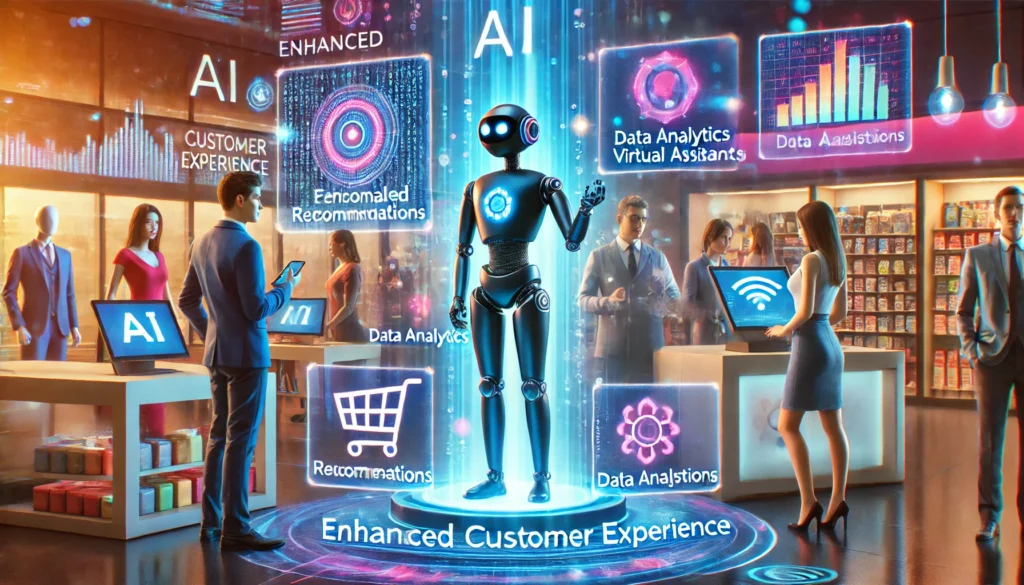
AI doesn’t just stop at personalization; it also enhances the overall customer experience. From chatbots to predictive customer service, AI is making it easier for brands to delight their customers.
AI-Powered Chatbots
Chatbots are perhaps the most well-known example of AI in customer service. These virtual assistants can handle a variety of tasks, from answering frequently asked questions to guiding customers through a purchase process. They’re available 24/7, providing instant support to customers whenever they need it.
Predictive Customer Service
By analyzing past customer interactions and behaviors, AI can predict potential issues and allow companies to provide proactive customer service. This means addressing problems before they become frustrations, leading to higher customer satisfaction and loyalty.
Voice Search Optimization
With the rise of smart speakers and voice-activated devices, optimizing for voice search is becoming increasingly important. AI can help marketers understand the nuances of spoken queries and ensure that their content is easily discoverable through voice search.
3. Impact of AI on Streamlining Marketing Operations
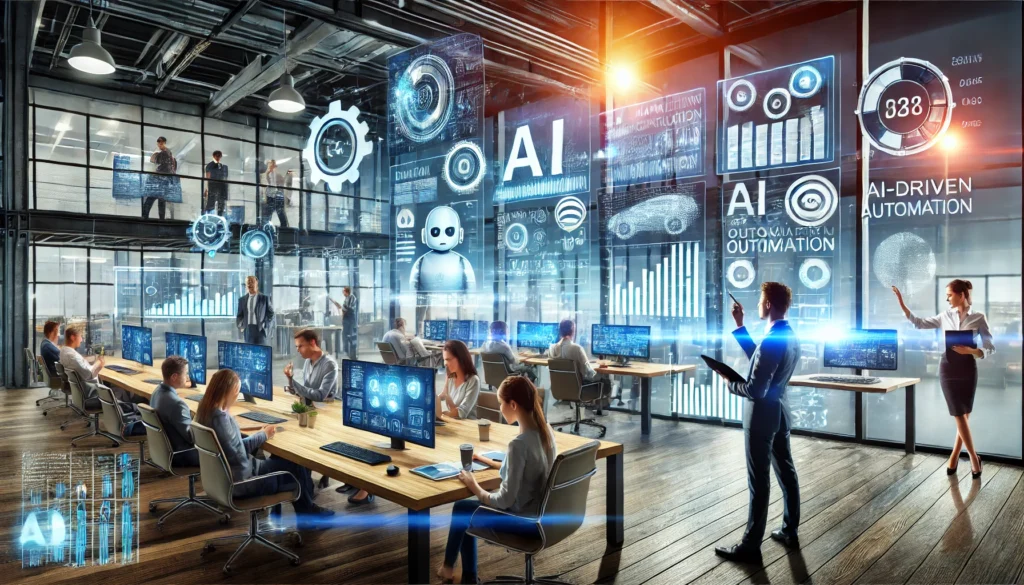
Behind the scenes, AI is streamlining marketing operations, making processes more efficient, and freeing up human marketers to focus on strategy and creative work.
Automating Routine Tasks
AI tools can automate a range of routine tasks, from scheduling social media posts to analyzing website traffic. This not only saves time but also reduces the likelihood of human error.
Predictive Analytics
AI’s predictive capabilities extend beyond customer service. Marketers can use AI to forecast future trends and consumer behaviors, allowing them to be proactive with their strategies. This might involve identifying potential hot products before they become mainstream or anticipating shifts in consumer sentiment.
Enhanced Content Creation
AI is also making strides in content creation. Tools like Chat GPT can generate articles, social media posts, and even code, based on input parameters. While they’re not a replacement for human creativity, they can assist in generating ideas and content at scale.
Optimized Ad Spend
AI algorithms can optimize advertising spend across various platforms, ensuring that marketing budgets are used effectively. They can analyze performance data in real-time and adjust campaigns to achieve the best possible ROI.
15 Examples of Artificial Intelligence in Marketing
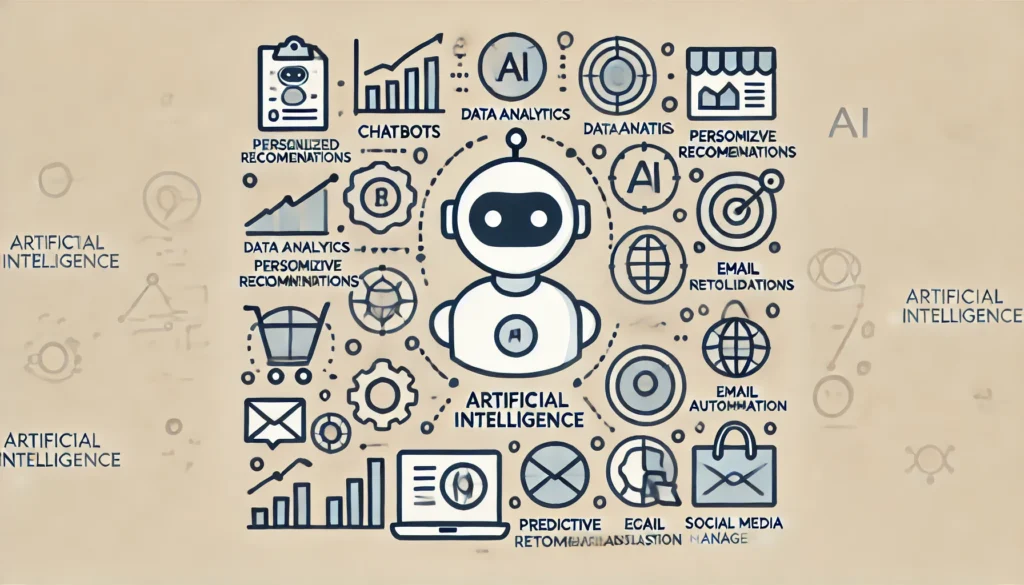
To illustrate the transformative power of AI in marketing, here are 15 examples of how AI is being used:
- Personalized email marketing campaigns that adjust content based on user engagement.
- AI-driven content curation for personalized user experiences on news and media websites.
- Dynamic pricing on e-commerce platforms.
- Virtual fitting rooms in online fashion stores using AI for size and style recommendations.
- Predictive customer service that anticipates issues before they occur.
- Chatbots that handle customer inquiries and streamline the support process.
- Voice search optimization for home assistants like Amazon Alexa and Google Home.
- Sentiment analysis of social media posts to gauge brand perception. You can also learn more about AI’s impact in our blog impact of ai on social media.
- Real-time language translation services that enable global marketing efforts.
- Facial recognition technology for personalized in-store experiences.
- AI-generated content that assists in blog post and social media creation.
- Predictive analytics for identifying emerging market trends.
- Programmatic advertising that targets users based on behavior and preferences.
- Marketing automation tools that schedule and post content across multiple channels.
- Customer segmentation tools that categorize consumers for targeted marketing campaigns.
AI Tools Revolutionizing Marketing
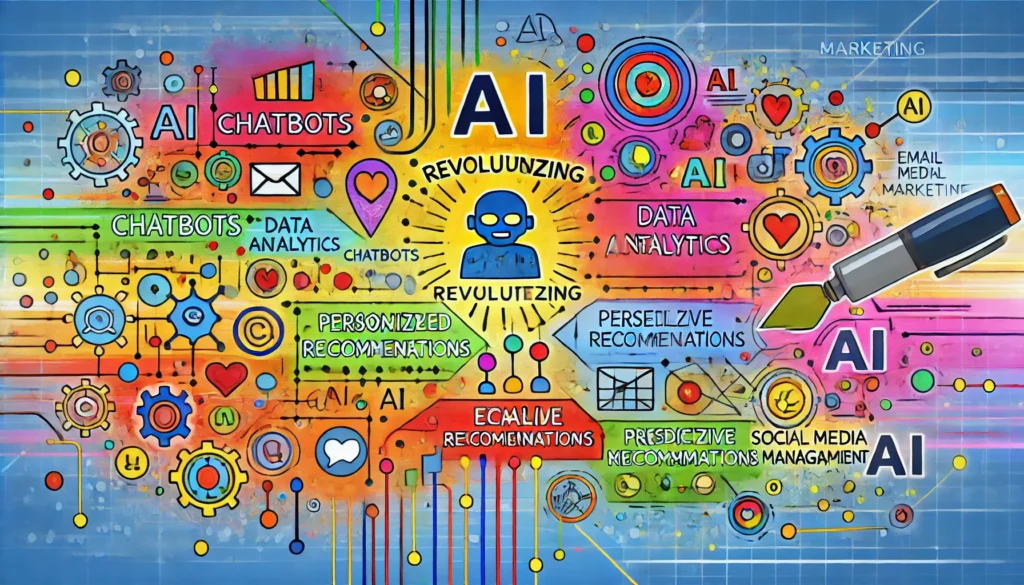
Several AI tools are at the forefront of this marketing revolution. Here’s a look at a few that are making waves:
- Salesforce Einstein: This CRM platform uses AI to provide predictions and recommendations based on your business processes and customer data.
- HubSpot: Known for its inbound marketing capabilities, HubSpot also offers AI-powered tools for content strategy and lead scoring.
- Adobe Sensei: Adobe’s AI and machine learning technology powers intelligent features across all Adobe products, enhancing creativity and workflow.
- IBM Watson: Watson provides AI for business, helping to unlock data and insights for better decision-making.
Conclusion
As we move into 2024, Impact of AI in marketing is becoming increasingly important. From personalized content to streamlined operations, artificial intelligence offers a wealth of opportunities for marketers to connect with their audience in meaningful ways and drive business growth. By leveraging AI tools and staying abreast of emerging trends, marketers can ensure they are at the cutting edge of the industry and prepared to meet the challenges of a rapidly evolving digital landscape.

